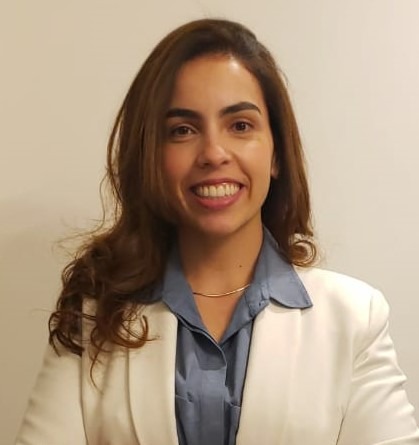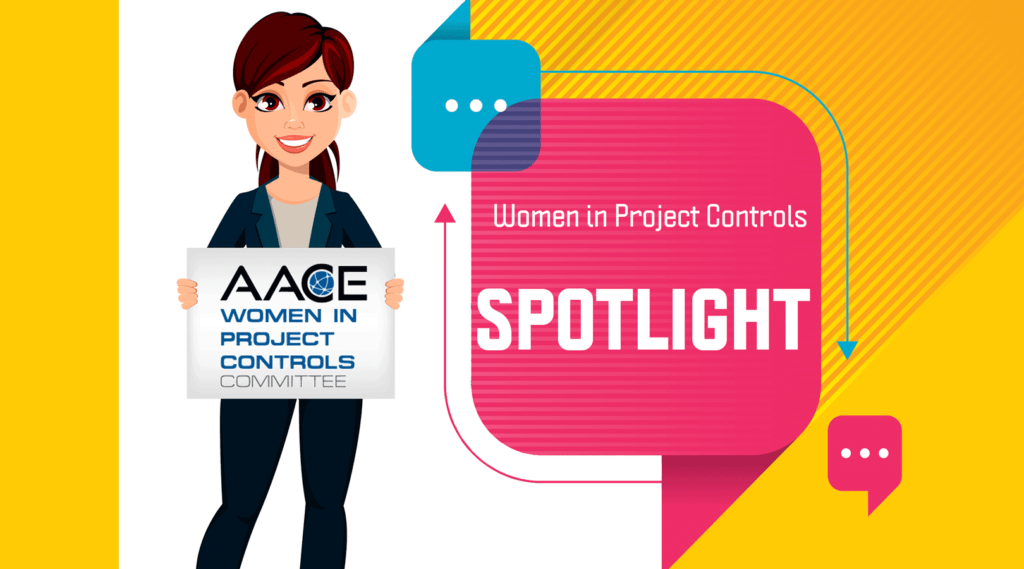Being Your Own Boss – A Story of Courage and Continuous Learning

An Interview with Andressa Maluf Figueira, MBA
Change is hard. Humans are habit-forming creatures such that when we are comfortable, we like to stay where we are. The same goes for our careers: once we are established in a company, well recognized by our peers, get paid well, or have become the experts in our field, taking a leap of faith and do something different is not an easy feat.
Meet Andressa Figueira, a Civil engineer in Sao Paulo, Brazil, with an adventurous spirit and courageous character, who started her own consulting business in Contract Management and Civil Construction Evaluations.
We had the pleasure of interviewing her recently, and here’s what she had to say:
Q: How did you get into the field of Project Controls?
A: I graduated in 2011 from Civil Engineering from the Mauá School of Engineering and worked in the Real Estate construction industry for eight years. During that time, I had worked in contract management, including strategic sourcing, technical and documentation analysis in legal disputes and arbitration between builders and developers. Eight years after graduation, I decided to open my own consulting firm and became a contract management service provider as well as a judicial expert!
Q: In a nutshell, how would you describe your role as a judicial expert in contract management?
A: Acting as a judicial expert is of great responsibility, and the role requires experience and accurate analysis. I am the professional who details the engineering to the judge so that he can make the necessary decisions that are technically supported. So, when it comes specifically to contract management, a good example is when a project ended up with cost increase; we know that in a construction project, documentation is often not available nor clear, and we need to determine the technical factors that cause the distortion, then the judge can decide who is responsible: the owner, the builder, or others. My job is to reverse engineer what happened, and piece together the budget, schedule, or plans that led to this point to assess accountability.
Q: Opening your own consulting firm is an impressive and courageous move! What prompted you to making that decision?
A: For me, it’s about continuous learning and improving my skills. I was in the real estate and construction industry for eight years at the time, and I found myself always pondering the skills I didn’t have and where I could acquire them. Further, I felt like I could contribute to more people, expand my network, and even venture into other industry sectors as well. I was looking for that next challenge in my life, an opportunity to achieve that vision I had for myself.
Q: That’s great self-reflection! What did your friends, family and colleagues think when you told them you were going to make that move and be your own boss?
A: Many questioned why and how I would be able to do it. First, the fact that I’m a female engineer already made me a minority, as females accounted for around 15% of the engineering students when I graduated. For a female engineer to venture out to be a leader in my field, and also to be my own boss, is even less common. So, some people thought it was a silly decision and thought I would have eventually changed my mind. In my family, my mother and my brother encouraged me. My father, though, was worried about the change, and wondered why I would leave an established job where I was well liked and professionally recognized. In the same year, I was also getting ready to be married, so I was planning for that and opening my own business at the same time!
Q: That certainly shows dedication and what must have been excellent planning skills. So, I gather you husband is a big supporter of what you’re doing?
A: My husband is one of my biggest supporters. He encouraged me to go venture out and agreed that having my own firm is a great way to hone my skills and pick up new ones. He also has his own company; so, in a way, he has set a great example for me.
Q: Were there any unique challenges for you as a female entrepreneur?
A: There were some people who questioned why I wanted to run my own consulting business. Some speculated that I must have had the financial means to do it because I had my husband to rely upon should I have failed – but that could not have been further from the truth. It was not financially comfortable for me and my husband, but we supported each other through this career decision that was important for me to grow.
Q: Back in the corporate world, earlier in your career, did you get treated differently as a woman?
A: We do have issues with pay parity between genders doing the same job, and women do have to do more to prove themselves capable. For example, it is not uncommon for a woman in the room to be asked to get a coffee or water, regardless of what her capabilities may be. I used to not mind it as much, but over time, I questioned why women are assumed to be the in the assistant role, and not the leader role. I think the best way to address the unconscious bias is to let my work and my abilities speak for themselves. In my current role, I find that this bias is occurring less now.
Q: What motivates you to keep going, despite the challenges you are facing?
A: The drive to learn and teach is what keeps me going. The more you learn, the more you realize that there is even more knowledge out there. It is also great to pass on that knowledge to someone else because teaching is a mutually beneficial experience.
Q: Do you have any advice for the men and women out there, thinking about starting their own business and being their own boss?
A:
1. Form a Circle of Alliance around you. Use this circle to share ideas with others and be the emotional support for each other.
2. Spend the time to learn and invest in yourself. Starting my own company was a new experience for me, especially when I had plans to support other sectors as well. I took courses in leadership, strategic negotiation, and conflict management to equip myself with the knowledge and skills I need to be successful. But it is always necessary to be continuously updated, so I have other courses in my mind. Basically, lifelong learning is the secret.
3. Recognize that success will not come immediately, and that there will be good times and bad times. When I first started, the first few months were not easy. COVID really affected business for a while, but I took that down time to improve my digital marketing strategy and platforms to be ready for the good times that will come. This mindset of focusing on long-term achievement is really important for running your own business.
4. Women are sometimes very hard on themselves. It is okay not to be perfect in something and admit that you don’t know the subject. However, tell yourself that you will go learn about it, and that knowledge on that subject will come in due time. Do not sell yourself short.
Q: I see that you are active in your local AACE Section in Sao Paulo as well and that you attended the last conference. How do these conferences help you in your career journey?
A: I am passionate about my field and helping other women achieve leadership opportunities, as well. Attending the AACE conference gave me a great opportunity to network with others, and the technical presentations were another great way for me to learn.
I plan to be at the next conference in Chicago, as I want to expand my horizon beyond Brazil into the rest of the world. I will use these opportunities to improve my English vocabulary and venture onto the international stage! I look forward to meeting more people at future AACE events!
Andressa Maluf Figueira is the owner and founder of AEM Engenharia e Perícias, and provides engineering consulting services with a focus on mediation, judicial, and arbitral proceedings in the real estate, infrastructure, energy, and oil & gas sectors. For more information about her company, visit https://aem.eng.br.
Rate this post
Click on a star to rate it!
Average rating 4.7 / 5. Vote count: 14
No votes so far! Be the first to rate this post.

